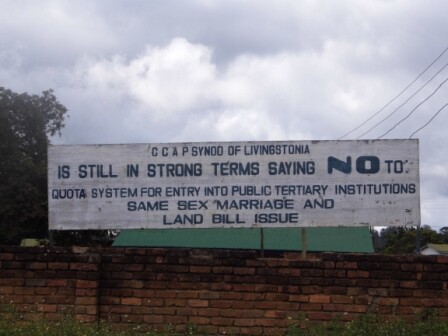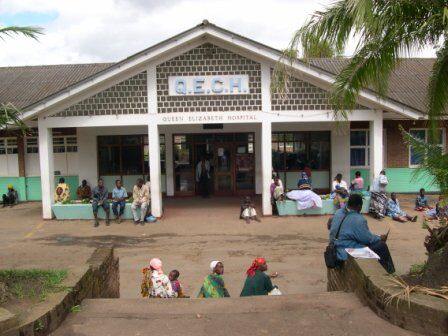
For 33 years now, Reverend Levi Nyondo, as God’s anointed ‘shepherd,’ has watched HIV/AIDS decimate his ‘sheep.’ Although his homilies have urged sexual abstinence and fidelity, which should slow spread of the disease, he grudgingly admits that the heavy loss of his parishioners to the pandemic is a clear sign that these messages are falling on deaf ears.
The problem may be that he and his colleagues in the Church of Central Africa Presbyterian pointedly fail to advocate two of the strategies health experts say hold the most promise of stemming the disease: medical male circumcision and condom use.
Paradoxically, Researchers from the University of Malawi’s College of Medicine found out that many men who took part in the VMMC programmes later went on sex sprees, arguing that they could not catch the virus since they had been circumcised.
In truth, circumcision reduces the infection rate by about 60 % or so, but does not prevent infections in every case. The scholars point out to a lack of proper communication about these issues.
 “We do not allow voluntary medical male circumcision even though we know that Jesus got circumcised. We stress biblical abstinence,” says the Reverend.
“We do not allow voluntary medical male circumcision even though we know that Jesus got circumcised. We stress biblical abstinence,” says the Reverend.
His office, with walls adorned with portraits of his predecessors as Secretary Generals of the church and colourfully decorated brass and golden crusted crucifixes, exudes the church’s ambience of the promised deliverance.
Swivelling in his leather, hard-back chair, he summarizes church doctrine on condoms in a single sentence: the church allows them for HIV-positive couples, but not “boys, girl, spinsters, bachelors or the divorced.”
Similar mixed or partial messages emanate from other sectors. In most of Malawi, circumcision has not been practiced traditionally, and leaders like Rev. Nyondo are reluctant to go against the tide.
In Malawi, traditional ritual circumcision is mainly practiced in the southern part of the country where there is a migrant labour population with a high HIV prevalence rate.
The region accounts for about 70% of the country’s HIV infections, according to ministry of health statistics.
In the northern region circumcision is considered a taboo or an alien practice.
“In my village it will be a surprise to many people to persuade them to have circumcision. They will tell you it’s not part of their culture. Who am I to defy culture? ” Nyondo asks.
Government, meanwhile, lists promoting circumcision and condom use among its HIV-prevention strategies, but the effort so far has been haphazard and largely ineffective.
Malawi’s roll out of medical male circumcision, in short, is akin to an orchestra where the woodwinds, brass, percussion, and strings have been belting out different tunes for more than five years while the conductor, the Malawi government, is either lost in a stupor or watching with resignation.
As a result, although the country set out five years ago to see about 2.5 million males in all 28 districts throughout the country get circumcised by December 2016 – 60 per cent of all males aged between 10 and 34 years – to date, only 260,188 men have undergone the procedure.

With US$23 million from the World Bank and PEPFAR down the drain, the Malawi government concedes that its target to circumcise 2.5 million males remains a mirage.
` Most of the people in the community believe that medical circumcision should be done to young men (5-10) and older men normally are coming in low numbers. Potentially we have difficulties creating demand among older men 25-35yrs, ` said Ministry of Health spokesperson Adrian Chikumbe.
Chikumbe claims Malawi has the overwhelming support of the religious and traditional sectors in its lofty ambitions to put a third of the country`s male population under the blade.
But publicly available figures and views on the ground show another picture.
Reverend Nyondo epitomises the Presbyterian Christians’ and the fractured cultural blinkered view prevalent in the country`s three regions..
On the other hand, the country`s Catholic bishops recommend male circumcision in order to help fight new infections but oppose the use of condoms, a much safer way of preventing the spread of HIV.
And 650 Km away from Nyondo’s office in a remote village in the southern district of Zomba, two traditional leaders broke the jinx by being circumcised at a VMMC camp at the district Hospital much to the chagrin of their peers and fellow villagers.
Through their gesture, the camp surpassed their target of circumcising 450 men by 84 during the weeklong exercise in March 2016.
“My sons hated the traditional way and they went for VMMC and later inspired me. As a chief I am supposed to help government in such campaigns but how do I urge people to go for VMMC if I did not go myself. I need to know what I talk about when I engage my people on VMMC,” Village Headman Chimbalanga said.
The ministry of health blames the slow pace of the programme on several bottlenecks which includes campaigning, communication and lack of human resources.
However, investigations in some of the country’s hospitals and clinics in the northern and southern regions of the country revealed that while officially they offer medical male circumcisions free of charge, in reality, optional circumcisions are considered a priority to other surgical procedures.
When Malawi developed its five year VMMC communication strategy which started in 2012 and is expiring in 2016, it left out two permanent and influential institutions of the social fabric of Malawi, the religion and tradition.
The fatal omission disregarded the fact that the majority of circumcisions in Malawi occurs in the context of religious and traditional rites.
“The communication strategy has been developed as the formal national VMMC communication strategy in Malawi. All senior ministry of health personnel, international local NGOs… should use this document t guide and inform their work,” reads part of the document.
Social Activist Moses Mkandawire says interventions in Africa need to include religious institutions and traditional systems of governance because these are permanent institutions.
Mkandawire noted that religious institutions wield a lot of power because the majority of people believe in God.
“Traditional systems of governance have been there since time immemorial. What traditional leaders do or say carries more weight among their people. Even in urban areas we have traditional leaders,” he said.
There is no indication from the government on either it is reviewing the VMMC communication strategy to incorporate the divergent and inconsistencies issues that are in Malawi as a means to scale up uptake of VMMC.
` We are working with local leaders, media , musicians , youths , footballers, the corporate world, faith organizations and role models to help in mobilizing males for VMMC,` said Chikumbe.
The International Center for Journalists (ICFJ) supported this story.
Collins Mtika is one of the 2016 fellows for the HIV Prevention Reporting Fellowship which sponsored by the Bill and Melinda Gates Foundation.















Where do the removed foreskin of the penis dumped?